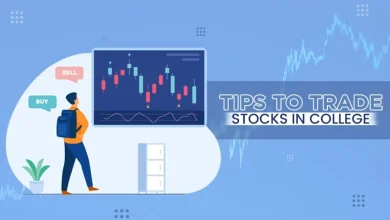Purchasing Index Funds: Essential Information

As of July 2022, Warren Buffett1 has a net worth of over $96.5 billion, making him one of the greatest investors of all time. For decades, his value-, discipline-, and patience-driven investing strategy has outperformed the market in terms of returns. Even though the majority of us, or normal investors, lack the resources to invest as wealthyly as Buffett does, we may nevertheless heed one of his constant advices: low-cost The majority of people’s best bet is index funds.
Here’s what you need know about investing in index funds if you’re considering following his advice.
Important lessons learned
- Index funds are exchange-traded funds (ETFs) or mutual funds that attempt to replicate the performance of an index by simulating the portfolio of the index.
- Over time, index funds have generally outperformed other mutual fund categories.
- Other benefits of index funds include cheap expenses, tax advantages (because they generate less taxable income), and low risk (since they are highly diversified).
Describe the Index Fund.
An index fund is a kind of mutual fund or exchange-traded fund (ETF) that aims to replicate the performance of a benchmark as precisely as possible by holding all (or a representative sample) of the securities in that particular index. Though there are indexes and index funds for almost every market and investment strategy you can imagine, the S&P 500 is arguably the most well-known. Purchasing index funds can be done directly from an index-fund provider like Fidelity or through your brokerage account.
Purchasing an index fund allows you to make a simple, low-cost investment with a diverse selection of stocks. Some index funds reduce your overall risk by providing exposure to thousands of securities in a single fund through broad diversification. You can create a portfolio that reflects your ideal asset allocation by investing in a number of index funds that track various indices. For instance, you may allocate 40% of your investments to bond index funds and 60% to stock index funds.
What Advantages Do Index Funds Offer?
The fact that index funds have routinely outperformed other fund categories in terms of total return is their most evident benefit.
One of the key reasons is that they are usually significantly less expensive to manage than other types of funds because they are passively managed. The portfolio of an index fund simply replicates that of the index it is meant to represent, rather than having a manager actively trade and a research team evaluate stocks and offer recommendations.
Because they hold onto investments until the index itself changes—which doesn’t happen very often—index funds also have reduced transaction costs. Your outcomes could be greatly impacted by those lower costs, especially over the long term.
What Consequences Do Index Funds Have?
Index funds included, no investment is perfect. Their inherent nature has one drawback: a portfolio that rises with its index also falls with it.If you invest in a fund that tracks the S&P 500, for instance, you will gain a lot when the market rises but will be fully exposed when it declines. As opposed to this, an actively managed fund manager would be able to foresee a market downturn and take the necessary steps, such modifying or selling portfolio positions, to protect it.
Fees on actively managed funds are a source of simple angst. However, an experienced investment manager’s knowledge can occasionally outperform the market in addition to safeguarding a portfolio. Few managers, meanwhile, have been able to maintain that level of performance year after year.
Furthermore, diversification has two drawbacks. Yes, it reduces risk and smooths out volatility, but as is often the case, doing so also restricts the potential. In contrast to a more selective portfolio in another fund, the broad-based basket of companies in an index fund could be negatively impacted by a few underperformers.
The Bottom Line
Index funds offer a number of alluring advantages, but there are drawbacks as well. The funds are an inexpensive investing choice because they are passive investments that follow major indexes. For individuals seeking low-cost investment, another alternative is to use a robo-advisor, which is almost as automated and hands-off as these funds. The best place to start is by learning what an index fund is and how it stacks up against other investment options.



